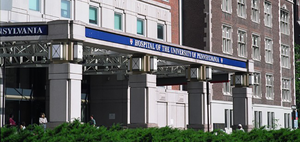Loading...
Found 11 Multiple Sclerosis trials
A listing of Multiple Sclerosis medical research trials actively recruiting patient volunteers. Search for closest city to find more detailed information on a research study in your area.

The purpose of this study is to compare efficacy and safety of Autologous Hematopoietic Stem Cell Transplant (AHSCT) to best available therapy (BAT) in relapsing MS. Best available therapy is referring to the best available medications that are used to treat MS. Patients who agree to participate in the experimental …
The primary study objective is to evaluate the rate of durable remission of relapsing disease activity, assessed serially both clinically and by MRI, from randomization through 48 months in participants with early relapsing multiple sclerosis who discontinue OCR after 12 and 24 months of treatment. Secondary objectives include: - Mechanistic: …
The overall objectives of this study are to evaluate feasibility and safety of thoracic duct sampling, including "in-and-out" cannulation and "indwelling" catheterization in early MS and to compare cellular and signaling markers in thoracic duct lymph compared to measures in the blood, within and across populations of MS patients before …
If you have type 2 diabetes and use short and long acting insulin then we would love to talk to you! The study is being done to learn if an automated insulin delivery (AID) system can safely control blood sugar in people with type 2 diabetes. We will refer …
Diabetes is a major co-morbidity in pancreatic insufficient cystic fibrosis (PI-CF) and associated with worse outcomes. While reduced -cell mass contributes to the insulin secretory defects that characterizes cystic fibrosis-related diabetes (CFRD), other modifiable determinants appear operative in the emergence and progression of abnormal glucose tolerance towards diabetes. Identifying interventions …

Dr. Amit Bar-Or, MD, FRCPC from the University of Pennsylvania Department of Neurology is conducting a study to investigate how the structure and activity of gastrointestinal microbes (bacteria and fungi) found in the gut contribute to multiple sclerosis pathogenesis. You are being asked to participate in this study because either …
This study aims to investigate the benefits of collecting lymph in addition to blood in patients with multiple sclerosis (MS). It is now well recognized that the central nervous system (CNS) is not as immune privileged as it has been considered. A system of lymphatic drainage has been described both …
This trial evaluates the effects of His or left bundle branch pacing (LBBP) comparative to biventricular pacing on quality of life, exercise capacity, hospitalization for heart failure, and mortality in patients with HF and conduction system disease. Study population is patients with heart failure with reduced ejection fraction (HFrEF) less …

We are conducting research studies on how immune system cells contribute to inflammatory conditions of the nervous system, such as multiple sclerosis, neuromyelitis optica (NMO), encephalitis, head injury, epilepsy, Parkinson's disease (PD), Alzheimer's disease (AzD), Lou Gherig's disease (amyotrophic lateral sclerosis; ALS) frontotemporal dementia (FTD) and others. This includes investigating …
Subjects with Stage III resectable melanoma will receive adjuvant therapy, nivolumab or ipilimumab plus nivolumab, based on whether a pathologic complete response (CR) or near CR (less than 10% viable tumor cells) is achieved with one dose of nivolumab in the neoadjuvant setting followed by surgery.